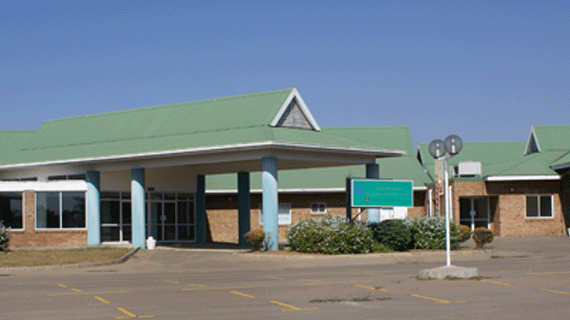The Parliamentary Portfolio on Health and Child Care has proposed that Ekusileni Specialist Centre in Bulawayo, be turned into a quarantine centre to accommodate potential cases of Coronavirus (COVID-19).
Ekusileni is a brainchild of the late Vice President, Dr Joshua Nkomo, meant to provide specialist medical care but the hospital has been closed for close to two decades while several attempts to reopen it have failed.
For Bulawayo and other southern parts, Thorngrove Infectious Disease Hospital was identified as the main centre were suspected or confirmed cases of the novel virus are to be treated.
But the Isolation hospital is ill-equipped to handle the COVID-19 cases as it has few beds and is faced with medical sundry shortages.
In an interview with CITE on the sidelines of an oral evidence hearing held by the parliamentary portfolio committee in Bulawayo Friday, the committee chairperson, Dr Ruth Labode, proposed that Ekusileni Hospital be opened to cater for any potential COVID-19 cases.
This call comes after the portfolio committee ruled the city was ill-prepared for a COVID-19 outbreak in the country after touring local hospitals on Thursday.
“All we can do is propose, hoping Ekusileni can be opened. We are asking for it to be a quarantine centre, not the main isolation hospital, meaning we still need to renovate Thorngrove and put the critical cases who may be tested positive. The positive cases who may not be that critical can go to Ekusileni as we don’t want them to go home,” Dr Labode said.
She noted that in the United Kingdom, those individuals who tested positive for COVID-19 but were not sick were sent home but under instructions to self-isolate.
“In the UK, people have their one bedroomed apartments, where they can live alone but here in Zimbabwe where you sometimes find 20 people in one setting, we don’t want to release patients to that home. This is why we are proposing that since Ekusileni has beds, those can be dusted in the event we have confirmed cases,” she said.
Dr Labode added that Ekusileni would serve as a temporary measure during the course of the outbreak and when eventualities occurred.
“This will be a stop-gap measure, because those who are positive and not sick, may need a few nurse aids and food. The centre can be a quarantine unit for the meanwhile, as we don’t know which way the pandemic will go.
“China had to build a whole new hospital, America didn’t build a new hospital but used existing places while in Italy was forced to close some hospitals and use them to treat infections. Nigeria isolated those who were positive at isolation centres so there is no formula but it is learning process for all countries,” she said.
Asked what Bulawayo’s health department must do since their requests for government support to revamp Thorngrove Hospital were still pending, Dr Labode said, “the government will respond – they don’t have the money but the World Health Organisation (WHO) is running around, everyone is running around and recently we received $25 million from Global Fund, so we pray that nothing happens until Thorngrove is revamped.”
At Thorngrove, there are a handful of beds for patients’ equipment, protective gear, with the hospital relying on Ebola equipment and the one it used when treating drug-resistant TB.
This is despite a visit in February by Health and Child Care Minister, Obadiah Moyo, who toured the facility and pledged to avail the necessary equipment to the institution.
During that same tour in February, health officials in the Matabeleland region told the minister more could be done to improve surveillance, detection, confirmation as well as treatment of any possible cases of COVID-19 in order to scale up preventative efforts in the country’s southern region.

